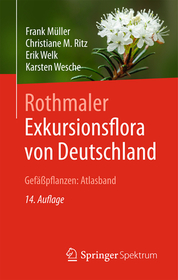
Advances in Physical Organic Chemistry
Series: Advances in Physical Organic Chemistry; 59;
- Publisher's listprice EUR 183.00
-
75 899 Ft (72 285 Ft + 5% VAT)
The price is estimated because at the time of ordering we do not know what conversion rates will apply to HUF / product currency when the book arrives. In case HUF is weaker, the price increases slightly, in case HUF is stronger, the price goes lower slightly.
- Discount 10% (cc. 7 590 Ft off)
- Discounted price 68 309 Ft (65 057 Ft + 5% VAT)
Subcribe now and take benefit of a favourable price.
Subscribe
75 899 Ft

Availability
Not yet published.
Why don't you give exact delivery time?
Delivery time is estimated on our previous experiences. We give estimations only, because we order from outside Hungary, and the delivery time mainly depends on how quickly the publisher supplies the book. Faster or slower deliveries both happen, but we do our best to supply as quickly as possible.
Product details:
- Publisher Elsevier Science
- Date of Publication 1 December 2025
- ISBN 9780443430350
- Binding Hardback
- No. of pages216 pages
- Size 229x152 mm
- Language English 700
Categories
Long description:
Advances in Physical Organic Chemistry, Volume 59, the latest release in this definitive resource for authoritative reviews of work in physical organic chemistry, provides a valuable source of information not only for physical organic chemists applying their expertise to both novel and traditional problems but also for non-specialists across diverse areas. The book's hallmark is in its quantitative, molecular level understanding of phenomena across a diverse range of disciplines. Sample chapters in this new release include Coacervate formation, partitioning of molecules into these phases, and artificial signal transduction systems.
MoreTable of Contents:
1. The area of artificial signal transduction systems
Nick H. Williams
2. TBD
Evan Spruijt
3. TBD
Dasan M. Thamattoor







